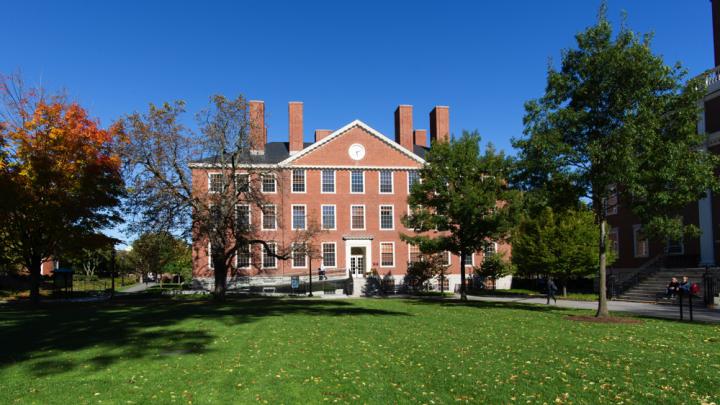The Radcliffe Institute for Advanced Study’s (RIAS) 2019-2020 cohort includes 55 fellows from 10 countries. The admission rate for the interdisciplinary research program was 3.7 percent, and the incoming class includes writers, artists, sociologists, historians, scientists, and others, who will spend the year working on independent projects and engaging with one another.
“This is a remarkable class of fellows,” said dean Tomiko Brown-Nagin, herself a former fellow. “Radcliffe’s Fellowship Program—a microcosm of the Institute—is a laboratory of ideas where scholars, artists, scientists, and practitioners draw insights from one another and generate new knowledge that spans disciplinary boundaries. I am extraordinarily excited to see what emerges from this incredible group of individuals in the year ahead.”
Eleven of the fellows are Harvard faculty members. Their names and projects are:
- Edo Berger, professor of astronomy. “All That Glitters Is Gold: Gravitational Waves, Light, and the Origin of the Heavy Elements”
- Allan Brandt, professor of the history of science and Kass professor of the history of medicine. “Enduring Stigma: Historical Perspectives on Disease Meanings and Their Impact”
- Paul Chang, associate professor of sociology. “Reinventing Family: The Rise of Non-Normative Households in South Korea”
- Chaya Czernowin, Rosen professor of music. “Fast Darkness”
- Sawako Kaijima, assistant professor of architecture. “Representation and Materialization of Interdisciplinary Matter”
- Jill Lepore, Kemper professor of American history. “If/Then: How Simulmatics Corporation Invented the Future”
- Khalil Gibran Muhammad, professor of history, race, and public policy at the Harvard Kennedy School, and Murray professor at Radcliffe. “Lessons Learned From Fifty Years of Civil Rights and Wrongs”
- Susan Murphy, professor of statistics and of computer science. “Data Science Algorithms for Personalizing Mobile Health Interventions”
- Todd Rogers, professor of public policy. “The Diffusion and Adoption of Welfare-Enhancing Innovations”
- Braxton D. Shelley, Marks assistant professor at Radcliffe and assistant professor of music. “Going Live! Music, Media, and the Technologies of Black Ecstasy”
- Todne Thomas, assistant professor of African American religions and Murray assistant professor at Radcliffe. “Family beyond the Family: Black Evangelical Faith in Social Context”
And three are Harvard graduate students:
- Angie Bautista-Chavez, Ph.D. candidate in government. “Exporting Borders: The Domestic and International Politics of Migration Control”
- Jacqueline Wang, Ph.D. candidate in African and African American studies. “The Carceral Laboratory: Risk Assessment and the Politics of Bail, 1898-1984”
- Linda Zhao, Ph.D. candidate in sociology.“Spatial Inequality in Birth Outcomes, Testing Classes of Mechanisms”
Other fellows include author Nina McConigley, who will work on a novel about the rural immigrant experience in the American West; Joanne Baker, an editor for Nature who will work on “A Cultural History of the Cosmos”; and Inupiaq poet Joan Naviyuk Kane ’00, with the project simply titled, “New Poems.”
“I am thrilled to welcome these extraordinary individuals to the Radcliffe community,” said Meredith Quinn, executive director of the fellowship program. “Our fellows dive deeply into their projects, challenge one another’s ideas, and support one another’s ambitions. We can’t wait to see what they’ll accomplish next year.”








